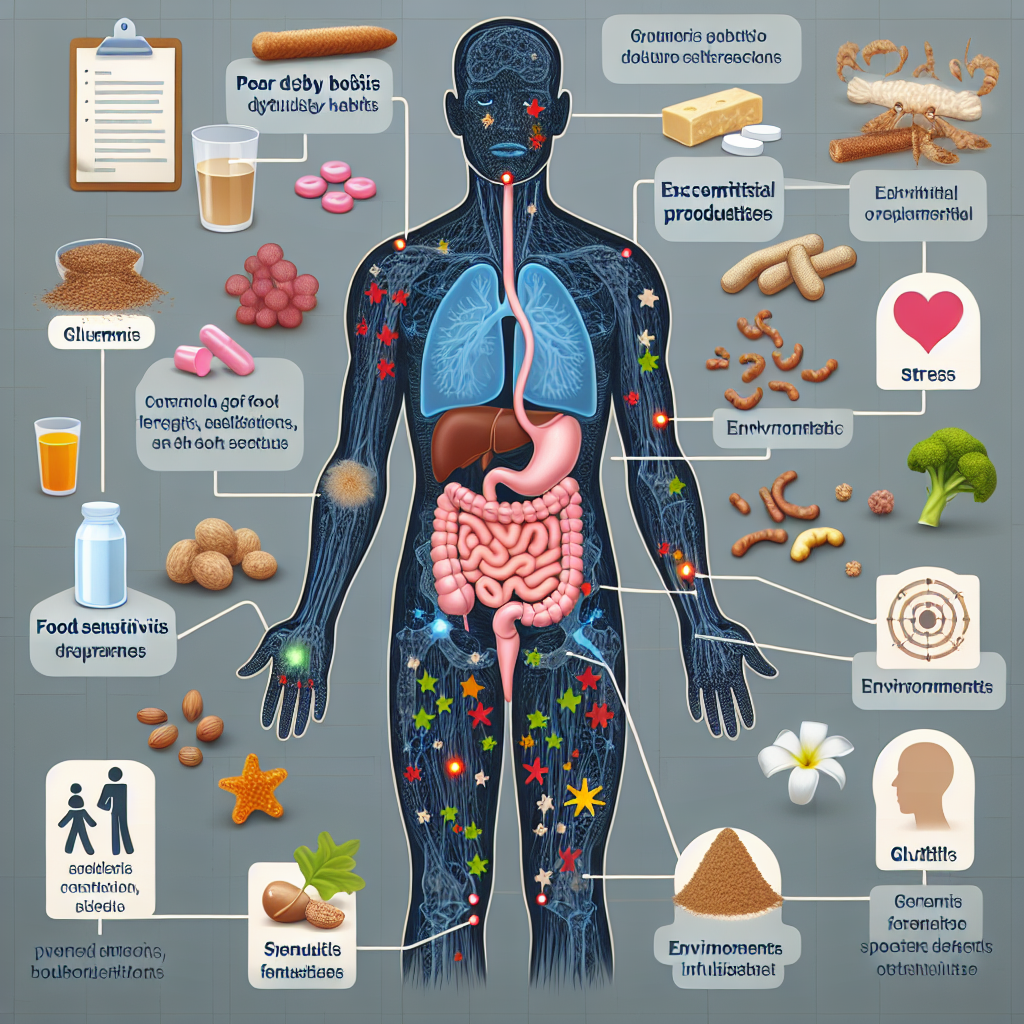Gut health is emerging as a focal point in preventive healthcare, with mounting evidence indicating its critical role in maintaining overall well-being and specifically in preventing food sensitivities. The intricate ecosystem within our digestive system, known as the gut microbiota, plays a pivotal role in digestion, immunity, and even influences our mood and mental health. Disruptions in this complex system can lead to an array of health issues, including increased food sensitivities. This article delves into the multifaceted relationship between gut health and food sensitivities, offering insights and strategies to bolster digestive wellness.
Understanding Food Sensitivities and Their Impact
Food sensitivities can manifest in various ways, from digestive distress to skin issues, fatigue, and headaches. Unlike food allergies, which involve an immediate immune response, food sensitivities are typically delayed reactions that can be harder to identify. They often arise when the gut barrier, which acts as a gatekeeper, becomes compromised, allowing undigested food particles to enter the bloodstream and trigger an immune response.
The Gut Barrier: Our First Line of Defense
The gut barrier is a complex and dynamic boundary consisting of a layer of epithelial cells and the mucus that covers them. This barrier not only facilitates the absorption of nutrients but also prevents the entry of harmful substances. A healthy gut barrier is selective, allowing beneficial substances to pass while keeping out potential allergens and pathogens.
The Microbiome: A Delicate Balance
At the heart of gut health is the gut microbiome, a diverse community of bacteria, viruses, fungi, and other microorganisms. A balanced microbiome supports digestion, synthesizes vitamins, and regulates the immune system. Disruption of this balance, known as dysbiosis, can impair gut barrier function and has been linked to a rise in food sensitivities.
To further understand this balance, exploring the connection between digestive health and overall well-being is key.
Factors Contributing to Gut Dysbiosis and Food Sensitivities
Several factors can disturb the delicate equilibrium of the gut microbiome, including:
- Antibiotic use: Antibiotics can indiscriminately kill beneficial gut bacteria along with pathogens, leading to dysbiosis.
- Poor diet: A diet lacking in fiber and rich in processed foods can reduce microbial diversity.
- Chronic stress: Prolonged stress can alter the gut microbiota and increase gut permeability.
- Environmental toxins: Exposure to toxins can harm the gut lining and microbiome.
Strategies to Support Gut Health and Prevent Food Sensitivities
Diversify Your Diet
Incorporating a wide range of plant-based foods can enhance microbial diversity. Prebiotic foods, such as garlic, onions, and bananas, provide fuel for beneficial bacteria. Fermented foods like yogurt, kefir, and sauerkraut introduce probiotics, which can help restore microbial balance.
For a deeper understanding of the role of these foods in gut health, consider reading about the importance of prebiotic foods.
Mindful Eating and Digestive Enzymes
Eating slowly and mindfully can improve digestion and nutrient absorption. For those with enzyme deficiencies, supplementing with digestive enzymes may assist in breaking down food more effectively, potentially alleviating some food sensitivities.
Managing Stress
Stress management techniques such as meditation, deep breathing, and yoga can reduce the negative impact of stress on the gut microbiota.
Avoiding Unnecessary Antibiotics
While antibiotics are sometimes essential, their overuse can be detrimental to gut health. Practicing caution and seeking alternatives when appropriate can help maintain microbial balance.
Regular Exercise
Physical activity has been shown to promote healthy gut motility and microbiota diversity. For insights on how exercise contributes to gut health, the article on how exercise promotes healthy gut motility is a valuable resource.
Monitoring Gut Health
Regular check-ups with a healthcare provider can help monitor gut health and address any concerns early on. Advanced tests that analyze the gut microbiome can provide a more detailed picture and guide personalized interventions.
Quality Sleep
Adequate sleep is essential for a healthy gut. Research suggests a bidirectional relationship between sleep and the microbiome, indicating that improving one can positively affect the other.
External Resources to Enhance Your Understanding
While our understanding of gut health is ever-evolving, several high-quality resources can provide further insights:
- An in-depth review on the gut-brain axis and its implications for health.
- The American Gastroenterological Association’s guidelines on gut microbiome and its influence on digestive health.
- A study exploring the impact of diet on gut microbiota and metabolic health.
Conclusion
The intricate relationship between gut health and food sensitivities underscores the importance of maintaining a healthy digestive ecosystem. By adopting lifestyle changes, such as diversifying our diet, managing stress, exercising regularly, and being mindful of medication use, we can support our gut health and potentially prevent or alleviate food sensitivities. As research continues to shed light on the complex interactions within our gut, individualized approaches to gut health become increasingly attainable. By staying informed and proactive, we can take meaningful steps toward digestive wellness and an improved quality of life.



